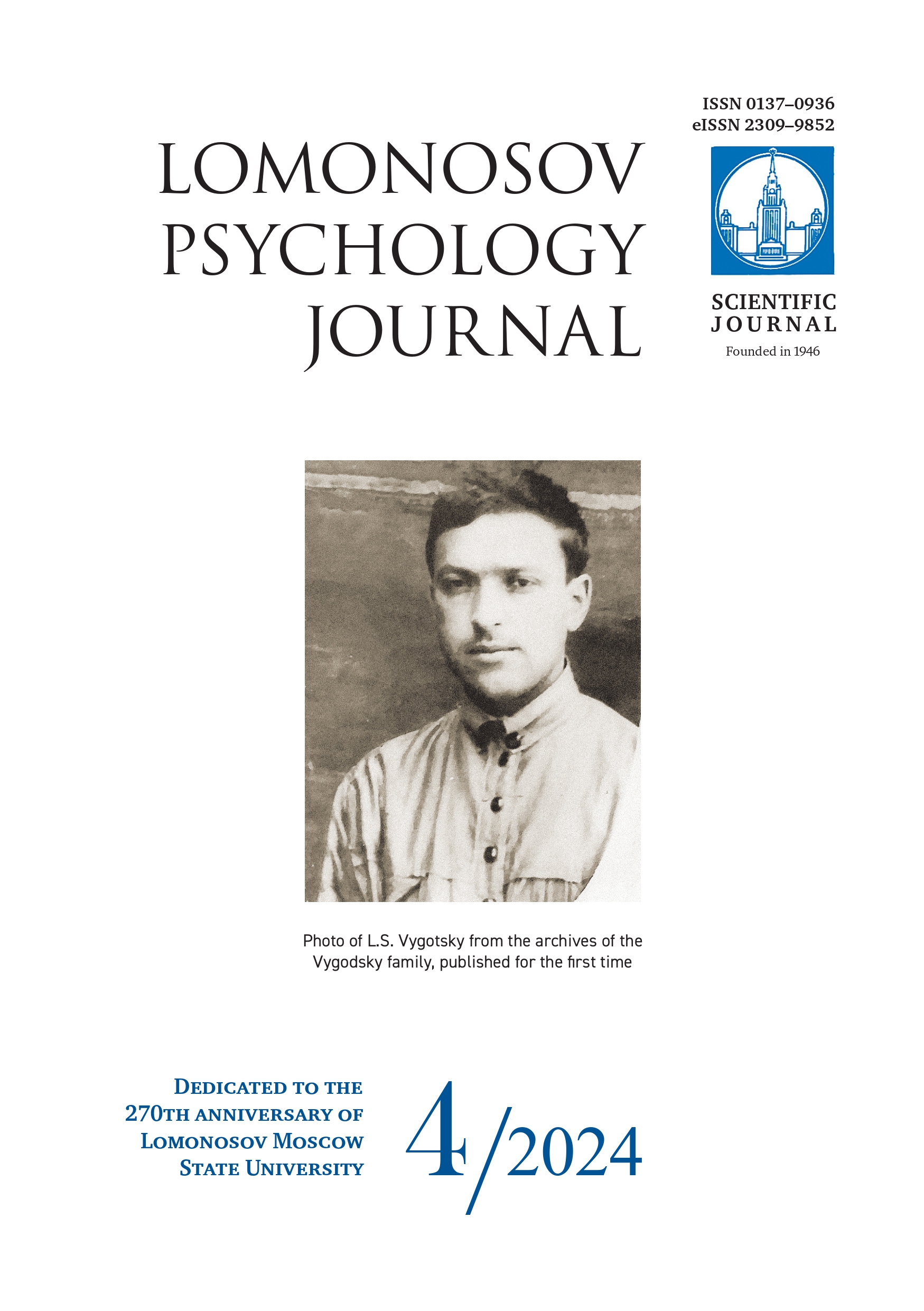Fourth issue of the “Lomonosov Psychology Journal.”

For the Faculty of Psychology at Moscow State University, Vygotsky's moral, ethical, and ideological positions, along with his personal approach to science, are particularly significant, as many of his closest students and colleagues (including A.N. Leontiev, A.R. Luria, B.D. Elkonin, A.V. Zaporozhets, P.Ya. Galperin, B.V. Zeigarnik, and others) played crucial roles in the establishment of the faculty. Most articles in this issue were prepared by their students or the students of their students. Thus, as the saying goes, many authors in this issue are just one or two "handshakes" away from Lev S. Vygotsky.
The "Theoretical Studies" section opens with an article by T.Yu. Bazarov, E.P. Belinskaya, and O.A. Tikhomandritskaya on the overlapping ideas of cultural-historical theory and social psychology. N.E. Veraksa's article focuses on dialectical analysis as a research method in Vygotsky's works. O.A. Karabanova discusses the theme of experience and "ideal form" in the context of the social situation of development. E.V. Subbotsky presents research on natural mental functions as sources of living consciousness. Contributions from international colleagues are highlighted in the article "Bridges or Walls: Remarks on Translating the Concepts of Cultural-Historical Theory" by Brazilian psychologists E. Tunes and Z.R. Prestes. G.A. Zuckerman and O.L. Obukhova address the problem of teaching and developing subjectivity.
The "Empirical Studies" section examines the relationship between vocabulary volume and emotional understanding in children aged 5-7 (by D.A. Bukhalenkova, A.N. Veraksa, U.D. Guseva, and E.S. Oshchepkova); the theme of experiencing "family pain" within a cultural-historical context (by A.M. Lutsenko and A.S. Spivakovskaya); and the link between unique personal characteristics and the professional activities of actors (by V.S. Sobkin and T.A. Lykova).
The third section, "History of Psychology," features several works that reflect on Vygotsky's contributions in a modern scientific context. N.N. Veresov discusses the development of cultural-historical theory and its contemporary interpretation; T.D. Martsinkovskaya analyzes time perspective in Vygotsky's work; and V.S. Sobkin reviews the changing assessments of Vygotsky's "Psychology of Art" by Russian psychologists. Of particular interest is the article by N.L. Savchenko and M.V. Siyan, which examines three previously unknown letters from L.S. Vygotsky to E.I. Kheifets.
The issue concludes with the article by G.G. Kravtsov and O.G. Kravtsov, "On the Classicism of 'Non-Classical' Psychology," which underscores Vygotsky's role as a pioneer of the scientific psychology of the future.
In presenting this issue of the journal, we hope that the materials published within it will resonate with our readers.
